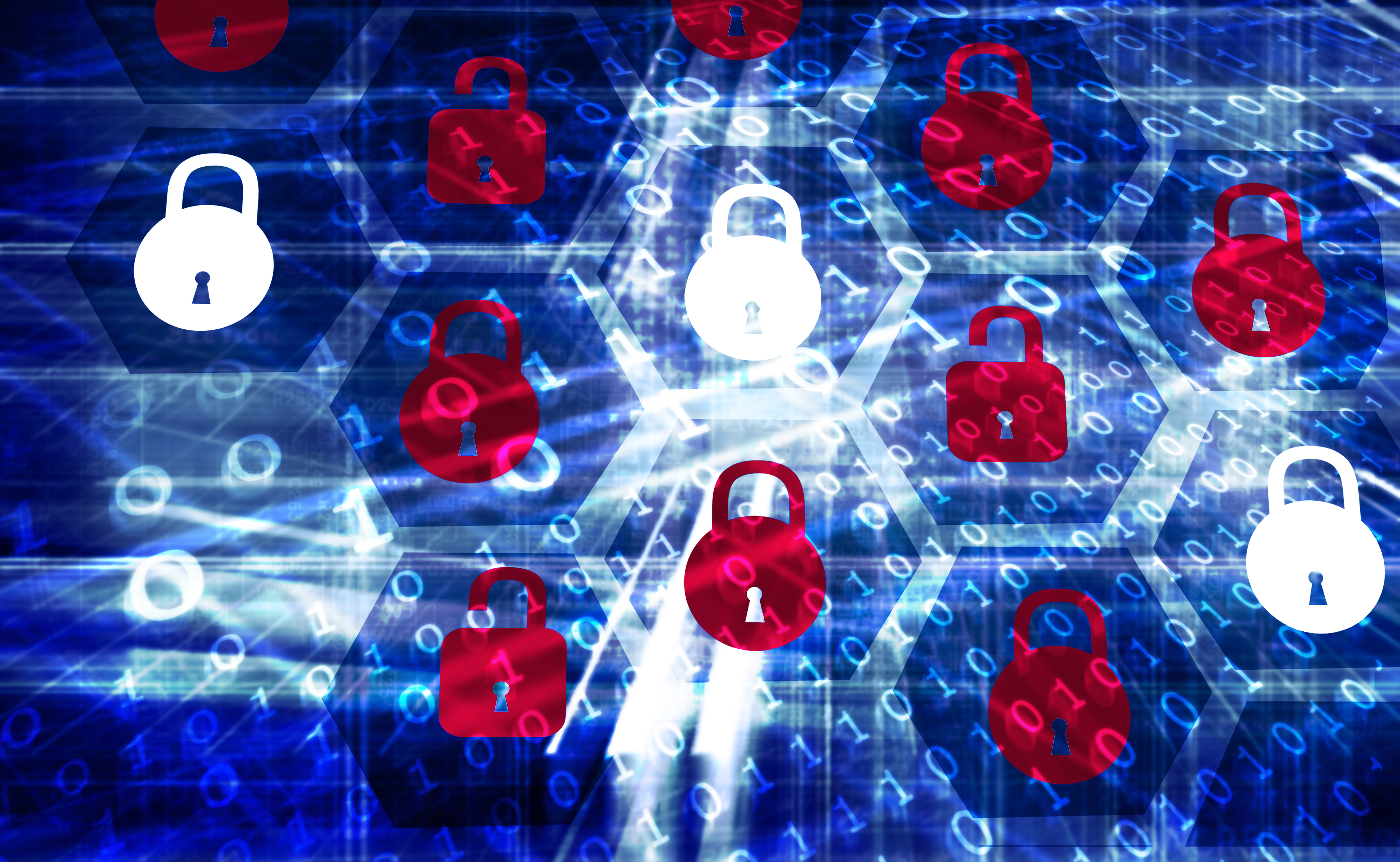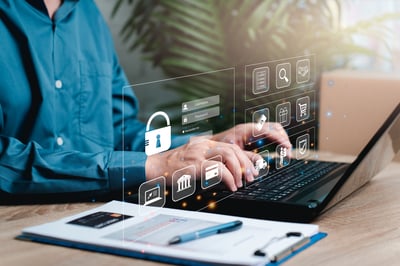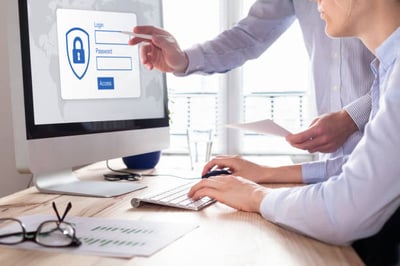May 14, 2024
 by Andrej Kovačević / May 14, 2024
by Andrej Kovačević / May 14, 2024

Your data is gold.
In today's hyper-connected world, personal information flows freely through a digital landscape. But with great convenience comes great responsibility—safeguarding our sensitive data from prying eyes and malicious actors.
Strong security is essential for individuals and businesses of all sizes. By implementing a strong data security strategy with data-centric security software, organizations can not only shield themselves from cyberattacks but also minimize the risks posed by human error and insider threats, which are persistent sources of data breaches.
Personal data security refers to practices for protecting sensitive information from unauthorized access, use, disclosure, disruption, modification, or destruction. This includes information such as name, address, social security number, financial data, and online activity.
Personal data privacy has become paramount as technology increasingly intertwines our lives. It's about your right to control your personal information and decide who has access to it, how it's used, and when it's shared.
Just like you wouldn't open your front door, personal data privacy ensures you have a say in who can peek through the window into your digital life. Understanding and prioritizing personal data privacy allows you to safeguard sensitive information and navigate the online world more confidently.
Strong personal data security safeguards your privacy and helps prevent cybercrimes. It's the key to safeguarding a vast amount of sensitive information about you, from your name and address to financial records and online activity. Here's why prioritizing personal data security is crucial:
Cyberattacks target entities of all sizes and sectors—individuals, corporations, and even governments. They can have a devastating impact, causing problems that range from financial losses to emotional distress. Stolen data can lead to identity theft, financial woes, and stress for individuals. Even critical infrastructure is at risk, with these attacks potentially causing widespread disruption.
In fact, according to IBM reports, the average cost of a data breach in 2023 is estimated to be around $4.45 million. These alarming figures emphasize the danger of cyber vulnerabilities and highlight the need to enhance personal data security and create a strong cyber security strategy.
Everyone must seize control of their digital fate and take defensive measures to keep their data safe. There are some simple ways to do that. Here are five clever, easy-to-manage ways to enhance your personal data security.
Most data breaches happen due to users' careless mistakes in securing their online accounts. Those mistakes can leave any data you store online vulnerable to attack and increase your odds of being a victim of identity theft or other cybercrime. In fact, even when you do everything right, you could still be a victim if the site suffers a hack and your passwords end up for sale on the dark web.
You should follow some best practices for securing your online accounts to stay safe. First, check here to see if your online accounts have already been compromised. If so, change your passwords right away.
When you do, follow these guidelines:
| l never use the same password for multiple accounts |
| l never include personally identifiable information in passwords (names, birth dates, etc.) |
| l choose passwords that are hard to guess but easy for you to remember |
| l create passwords that are as long as the site you're securing will allow |
| l never share your passwords with anyone or keep them stored in plain text (on your devices or in writing) |
Whenever it's an option, use two-factor authentication (2FA). That way, even a hacker with access to your passwords cannot access your accounts. Invest in a hardware security key to make your accounts totally bulletproof.
One of the best ways to protect your personal data is to use encryption to render it unreadable by anyone other than those authorized to see it. The first step is to enable storage encryption on your connected devices so they will be safe, even if they're lost or stolen. On iOS or Android-powered devices, this can be accomplished at the touch of a button. The process is a little more involved on Windows devices but is still worth doing.
The next thing to do is to use websites with SSL encryption whenever possible. You'll know if a website is encrypted if its address begins with "https://" or if you see a padlock icon preceding the site's name in your web browser's address bar. To help you make sure you're using the encrypted versions of websites as much as possible, you can even install a free browser plugin that will redirect you to the right place by default whenever possible.
Another way to keep your data safe is to use VPN software, which encrypts all your internet traffic no matter where it's headed. Today, you can subscribe to a month of a consumer VPN service for about the cost of a cup of coffee, so it's an inexpensive security upgrade for any internet user.
Various providers offer VPN services for multiple platforms (to cover all of your devices), and it's even easy to find a VPN for Mac computers despite the closed nature of Apple's software ecosystem. That way, you can wrap all your data in a layer of encryption for added privacy and security everywhere.
In today's multi-platform and multi-device environment, manufacturers go out of their way to make connected devices as user-friendly as possible. One of the side effects of that is that software updates often happen in the background, and it's easy to lose track of each device's status. Worse still, people all over (and even some big corporations) still have the habit of deliberately stopping software updates because they find them inconvenient.
From a personal data security point of view, that's a terrible mistake. Most device-specific cyberattacks rely on unpatched software flaws to gain access to protected systems, so avoiding software updates is akin to inviting hackers to take advantage of you. Therefore, you should set aside time weekly to ensure all software on your devices is as up-to-date as possible.
One of the biggest difficulties people have when trying to protect their data online is the sheer scope of what they must try to secure. To tackle the challenge, the first thing to do is to try and eliminate unnecessary online accounts to make yourself a smaller target for hackers. You can use several methods to find and delete old or unused web accounts, and you should make every effort to do so.
With your accounts pared down to a manageable level, the next thing you should do is to categorize the accounts you have left into groups. Connect your most important accounts to an email account you don't plan to ever get rid of (so no work accounts or ISP-provided emails). Consider connecting everything else to a throwaway email account so you can dispose of the accounts (and the email itself) if any are ever compromised. You can also consider email security services to ensure better safety.
Last, it's important to realize that no defense may be adequate in the face of constant threats to your personal data. Cybercriminals can cause just as much trouble by denying you access to your own data as they can by stealing it for themselves.
Therefore, keeping up-to-date backups of your critical data is critical to recover from such an attack. There are several ways to do this, ranging from local disk backups to cloud-connected backup services. Whatever you choose, the most important thing is to ensure that your backup is running as it should and to conduct a test restore every now and then to check that your recovery processes work correctly.
In addition, you should run credible antivirus software to keep your PC infection-free. This will decrease the likelihood of a ransomware attack and help alert you to a problem before it can be replicated in your backup data. While an infected backup is not always the end of the world, it is a situation you should try to avoid at all costs.
If you follow these five simple steps, you'll do your utmost to keep your personal data safe and secure on your devices and online. However, there's no such thing as a sure thing because you still have to rely on the sites and services you use to do your part to keep your data secure.
Still, the proactive steps outlined here should serve as an effective defense against most data threats, so they're more than worth your time and effort. Put them into action today, and you should be safe and secure no matter what threats may come.
Learn more about data protection and why it's important.
This article was originally published in 2019. It has been updated with new information.
Andrej is a digital marketing expert, editor at TechLoot, and a contributing writer for a variety of other technology-focused online publications. He has covered the intersection of marketing and technology for several years and is pursuing an ongoing mission to share his expertise with business leaders and marketing professionals everywhere.
Cyber threats are becoming more frequent and sophisticated, and it is imperative to take...
 by Simon C. Melander
by Simon C. Melander
For many employees today, the workplace is no longer a fixed location.
 by Amber Steel
by Amber Steel
When I was a kid, passwords were a fun little game. I’d come up with something silly, like my...
.png) by Devyani Mehta
by Devyani Mehta
Cyber threats are becoming more frequent and sophisticated, and it is imperative to take...
 by Simon C. Melander
by Simon C. Melander
For many employees today, the workplace is no longer a fixed location.
 by Amber Steel
by Amber Steel


